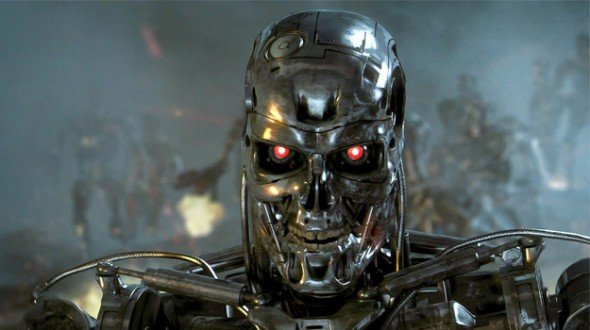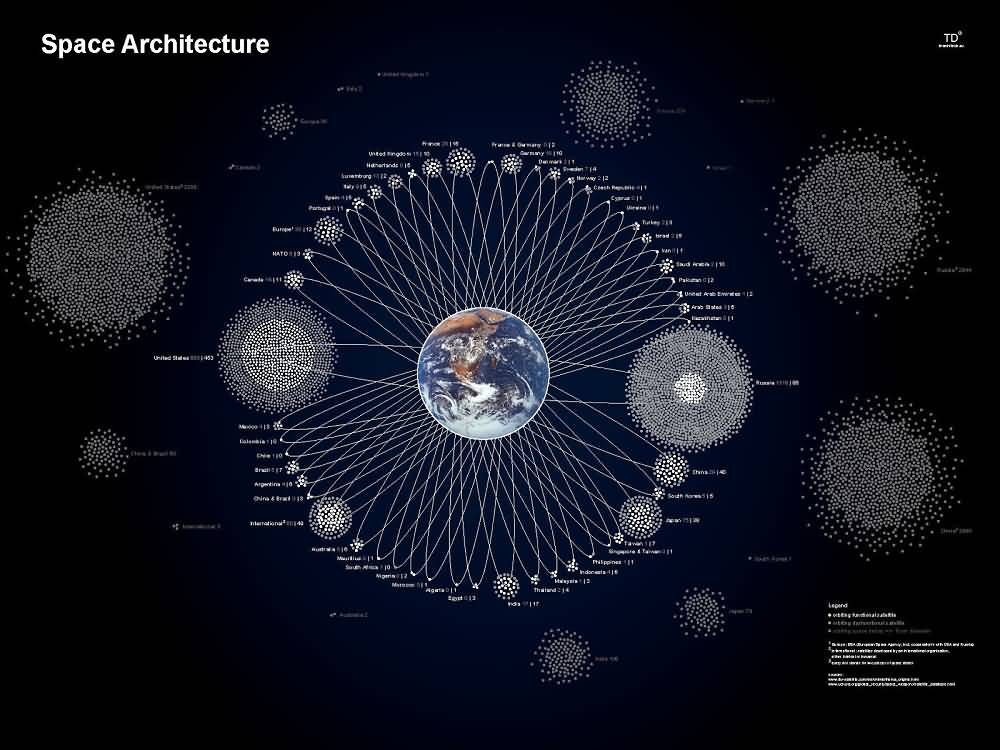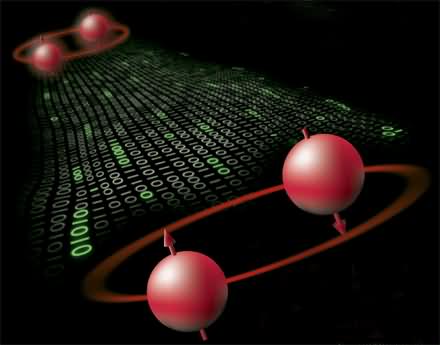Artificial Intelligence – Skynet
When it comes to artificial intelligence or robots, the first thing that comes to mind is Skynet. Or, for the general public who haven't seen the Terminator movie and then thought much of it, Terminator is the only one that comes to mind. It was a great movie from my childhood.
The second film, Judgment Day, is especially considered a masterpiece. I can't remember how many times I've watched it. Contrary to what many people believe, there are many books about Terminator besides the movie. Let's get back to the topic at hand. Every programmer has probably thought about it at least once: writing artificial intelligence. Even though I'm just getting into web programming, I still have this idea. But I'm more realistic and know that artificial intelligence is impossible with current technology. I'll explain why.
First, let's make this clear. While Skynet, the Terminator, and machines from the future (according to current laws of physics, traveling to the past is impossible, and if they remain unchanged, certain things are impossible in the future as well) may sound like science fiction and fantasy to us all, for some, they aren't. Artificial intelligence researcher Steve Omohundro recently published an article in which he argues that far from being science fiction or fantasy, artificial intelligence is even developing today.
Omohundro began by stating that autonomous systems are inevitable. These autonomous systems are systems that can make decisions on their own. Don't let such systems get in the way of our lives. For example, with big data (you can find my article on this here – THE TREND OF THE FUTURE IS BIG DATA – ) There's already a system that knows what you're interested in on any given day, what you're researching, what you're going to buy, and your intentions for vacation. Google and Facebook know this, so they can show you the most relevant ads based on this information. For example, I did a little research on a tablet computer to do a lot of my work. Then, tablet computer ads started popping up on every website I visited. Of course, it's worth noting that my Google account was logged in to my browser. You can try it too. Beyond these, there are unmanned aerial vehicles and robot soldiers currently under development, which are planned to be incorporated into the army in the future. And these will be autonomous, meaning they will decide whether to kill the person in front of them. Not humans. This is real.
Omohundro continues: These autonomous systems will demand more processing power to complete their work faster (here, he's talking about cloud computing, or systems on the internet). Once they have that processing power, they may not want to give it up or shut down. This is theoretically possible. And in such a case, you wouldn't have a power-off button.
According to Omohundro, in reality, autonomous systems can deviate from their own algorithms to complete tasks faster, develop new techniques and solutions, and improve themselves. He also offered some methods to prevent something like Skynet from forming. With specialized hardware—hardware operating on different foundations everywhere—we could prevent this AI from going crazy. Or, we could write a program that oversees all autonomous systems.
Now let's get to the real deal. I'm not an AI researcher, but I don't know if this researcher is trying to be completely well-read or what, but he's straying from realism. As he says, autonomous systems (in the IT world, AI is used for systems that can make choices without human intervention, but of course, they may not be systems that can think) must first be able to think and consider different perspectives in order to make decisions and conduct research in this way. We know that no system currently has this ability. For something to be improved, it must be examined from another perspective to identify its shortcomings, or a better method must be identified. No system possesses such a capability. But quantum computers can make this possible.
From here on, there will be both my own predictions and a wealth of information about how computer systems work.
How does the processor work?
All electronic systems depend on one thing: the availability of electricity. Okay, don't be offended; it's not what you think. A processor is made up of billions of transistors. This transistor has three legs. Electricity enters one leg and exits one of the other two. The leg through which electricity flows is 1, and the other, the leg through which electricity doesn't flow, is 0. So, as you know, 0 and 1 are nothing but electricity. So how do these processes work? It's about the possibilities for electricity to travel between transistors. I won't go into detail here, but imagine there are 2 billion transistors connected like this. The number of paths electricity can take is quite large, right? This probability forms the basis of a computer's computing power. I've included a picture of an AMD processor, so stay away from Intel :)
How does our brain work?
Did you know that our brains are actually no different? Our nervous system is entirely electrical, and an electrical current enters one leg of a synapse and exits the other, possibly 7-8 legs. That's all there is to it. In fact, if we delve deeper, we could even describe it as a flow of electrons between the atoms that make up a synapse. The choice is yours. In reality, the concrete existence of the mind cannot be demonstrated. For example, areas of the brain such as touch, vision, and speech are known. This information was learned by monitoring the brain's electrical activity during those activities. But how the ability to understand those activities occurs is unknown. This is where my theory comes into play. I say "my" because it's a conclusion I've reached myself. I haven't seen any research or information like this yet. If anyone has, please let me know :)
Biological Computers Brain
Of course, we've heard this term a lot, but I'll proceed from a different perspective. We've said that the computing power of computers depends on the possibility of electricity flowing between transistors. Now, let's make a comparison. Currently, processors have an average of 4-5 billion transistors at most. Graphics processing units can have a bit more. The average adult brain has 1015 with 5×1015 There are synapses between the neurons. And each synapse has 7-8 legs. Can you estimate its processing power? In my opinion, intelligence is not a concrete thing and cannot be sought in anything concrete. But it is not a metaphysical phenomenon, as metaphysicians claim. It is an ability. An ability born of our brain's processing power. Of course, later I thought, if this were all it was, for example, an elephant's brain would be larger, so its intelligence would be more advanced than ours. But that's not the basis of the matter. In fact, the brain is also autonomous. It automatically controls, supervises, and issues commands to our entire body, without our consciousness. The key here is the brain-to-body ratio. The human brain has the highest body weight ratio. In other words, while other living beings' brains mostly perform autonomous tasks, our brain is far too large for that. Now, to those who ask where the intelligence is, there's a logical argument you can ask. Of course, there's a saying that the number of possible connections between synapses is greater than the number of atoms in the universe, but I'm not sure it's true. The calculations show both are enormous and immeasurably large. But if that is the case, the human mind created by such a high probability is frankly disappointing to me.
Quantum Computers and Artificial Intelligence
Quantum computers are built on a very different foundation than computers we know. Instead of transistors and their electrical currents, quantum computers use atoms and their superpositions. What are these superpositions? In addition to the familiar properties of atoms like number of electrons and protons, and mass, atoms also have a property called spin. You can think of this as the direction of spin. Normally, it's the direction of spin for particles, but I'm not sure if it's the same for atoms. The four spins in atoms are used, thus increasing the available probabilities. While standard computer systems have bits, quantum computers have qubits. But this isn't the real revolution. Using quantum mechanics techniques, atoms are created in superposition. That is, they have spin in all directions simultaneously. In other words, they use probability waves. The power of being able to spin in all directions simultaneously is incredible. Currently, if I recall correctly, a four-qubit quantum computer has been built as a prototype and is being used for testing purposes.
This superposition of atoms isn't easily achieved. It can only be achieved at temperatures as cold as -180 degrees Celsius, and therefore, the superposition isn't permanent. But a solution will undoubtedly be found. The main point I want to make is that quantum computers, with their immense processing power, could lay the foundations for an artificial intelligence even superior to our own. In that case, who will protect us? Or are we worth protecting?













If you're interested, I can share something about the brain's actual function. I'm writing this in 2021, six years after your article.